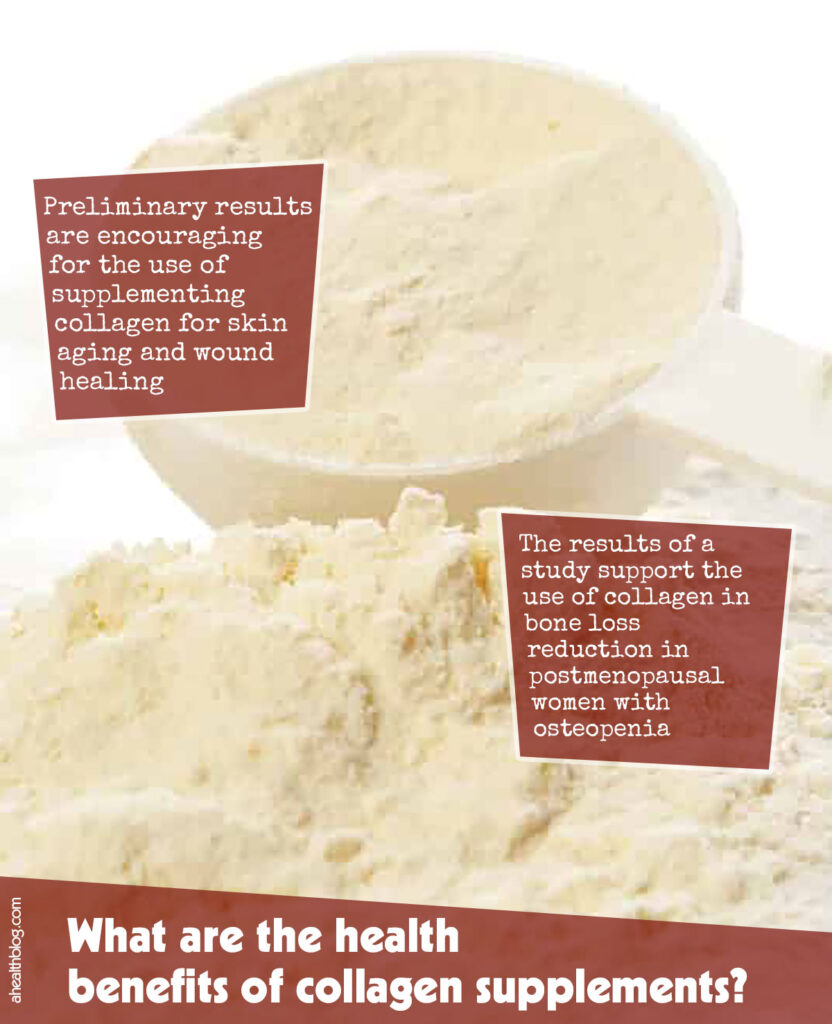The Advantages of Taking Collagen Supplements for Health
What Is Collagen? Collagen is the most abundant protein found within our bodies and makes up several different connective tissue components such as muscles, ligaments, tendons and skin.
Type I Collagen (usually present in skin, bone, ligaments, tendons, cornea, dentin and scar tissue). Type I collagen provides strength with flexibility. It resists stretch tension force. It can be found everywhere from skin to bone ligaments tendons cornea dentin and scar tissue.
Type II: Resistant to pressure, found in intervertebral discs and joints’ hyaline and articular cartilages.
Type III: Reticular fiber components provide flexible cellular support meshworks, often found in organs such as blood vessels and skin. Reticular fibers also play a significant role during wound healing processes and aid in creating granulation tissue formation.
Type IV Collagen: This form of collagen serves as a meshwork that secures its attachment to and support for an extracellular matrix that forms the basement membrane’s basal lamina, an integral component of eyesight, hearing, and kidneys.
Health Benefits of Collagen Supplements Most collagen supplements are hydrolyzed, meaning the collagen has been broken down to facilitate absorption. Collagen supplements come primarily in powder form but capsules also exist. Different supplements contain multiple types of collagen; some might contain only 1 or 2 types while others might boast up to 5 types.
1. Collagen Supplements for Combatting Bone Loss
Bone is an intricate tissue made up mainly of collagen matrix filled with hydroxyapatite crystal. The mechanical properties of bones depend on this collagen matrix which gives strength and structure to their mechanical properties.
Bone mass and collagen both decline with age, leading to diseases such as osteoporosis which is characterized by low bone density and increased fracture risk. According to studies, collagen supplements may help stop this break down and mitigate osteoporosis risk.
Menopausal women are at increased risk of osteoporosis. A study reported the long-term effectiveness of calcium-collagen chelate for bone loss reduction among postmenopausal women. Thirty-nine women were randomly divided into one of two groups: either taking 5 g of calcium-collagen chelate containing calcium and vitamin D daily or just calcium/vitamin D supplements over 12 months – either way each group received nutritional support via supplementation with 5g calcium/collagen chelate/vitamin D daily or just calcium/vitamin D supplements daily for 12 months.
At the outset of this study and then six and 12 months later, total body, hip bone and lumbar mineral density was assessed at six-monthly intervals for women supplementing with calcium-collagen chelate; significantly less loss was noted than for control group at twelve-monthly assessments, which supports its use for postmenopausal women with osteopenia.
Another study demonstrated similar results with 66 postmenopausal women supplementing with 5 grams of collagen daily for 12 months, showing an increase of up to 7% in bone mineral density compared with those who didn’t supplement.
2. Collagen Supplements for Relieve of Joint Pain
Collagen is key in maintaining the integrity of cartilage that cushions joints and protects them, so as we age collagen levels decrease with increasing risk of osteoarthritis developing.
Osteoarthritis is a prevalent degenerative joint condition and one of the primary sources of disability. Collagen therapy has shown promising results for treating osteoarthritis.
Studies indicate that collagen supplements could help ease osteoarthritis symptoms and joint pain, according to various research. Hydrolyzed collagen has shown positive therapeutic results on osteoarthritis and osteoporosis patients by potentially increasing bone mineral density while providing protection for articular cartilage.
Studies conducted on individuals living with osteoarthritis showed that supplementing with collagen led to significant improvements in symptoms and joint stiffness. Collagen proved its worth by decreasing both VAS scores and WOMAC index.
3. Collagen Supplements to Enhance Skin Health
Human skin is composed largely of connective tissue rich in collagen that provides functional and structural support, produced, maintained, and organized by dermal fibroblasts. Over time however, dermal collagen fibrils become weaker with age, eventually resulting in structurally thinner and thinner skin. Collagen supplements may provide much-needed support in helping skin maintain health by providing needed structural and functional support to this organ that gives us life!
Research has discovered that collagen peptides or supplements containing collagen could aid in slowing skin aging by decreasing dryness and wrinkles. A review of 11 studies, predominantly female participants, discovered that supplementing 3-10 grams daily of collagen for an average period of 69 days led to significant improvements in skin elasticity and hydration levels.
Initial findings on supplementing collagen for skin aging and wound healing are encouraging. Collagen supplements increase dermal collagen density, skin elasticity and hydration while being relatively safe without any reported unwanted side effects.

